Olof Mogren
Aggregation Strategies for Efficient Annotation of Bioacoustic Sound Events Using Active Learning
Mar 04, 2025Abstract:The vast amounts of audio data collected in Sound Event Detection (SED) applications require efficient annotation strategies to enable supervised learning. Manual labeling is expensive and time-consuming, making Active Learning (AL) a promising approach for reducing annotation effort. We introduce Top K Entropy, a novel uncertainty aggregation strategy for AL that prioritizes the most uncertain segments within an audio recording, instead of averaging uncertainty across all segments. This approach enables the selection of entire recordings for annotation, improving efficiency in sparse data scenarios. We compare Top K Entropy to random sampling and Mean Entropy, and show that fewer labels can lead to the same model performance, particularly in datasets with sparse sound events. Evaluations are conducted on audio mixtures of sound recordings from parks with meerkat, dog, and baby crying sound events, representing real-world bioacoustic monitoring scenarios. Using Top K Entropy for active learning, we can achieve comparable performance to training on the fully labeled dataset with only 8% of the labels. Top K Entropy outperforms Mean Entropy, suggesting that it is best to let the most uncertain segments represent the uncertainty of an audio file. The findings highlight the potential of AL for scalable annotation in audio and time-series applications, including bioacoustics.
The Accuracy Cost of Weakness: A Theoretical Analysis of Fixed-Segment Weak Labeling for Events in Time
Feb 13, 2025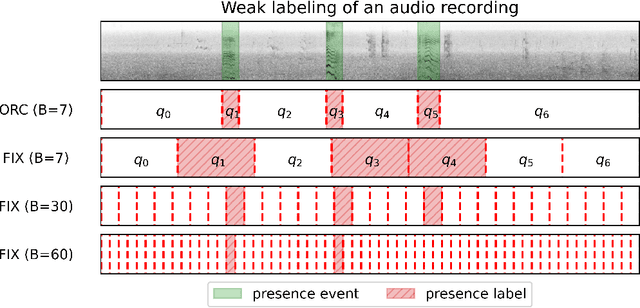



Abstract:Accurate labels are critical for deriving robust machine learning models. Labels are used to train supervised learning models and to evaluate most machine learning paradigms. In this paper, we model the accuracy and cost of a common weak labeling process where annotators assign presence or absence labels to fixed-length data segments for a given event class. The annotator labels a segment as "present" if it sufficiently covers an event from that class, e.g., a birdsong sound event in audio data. We analyze how the segment length affects the label accuracy and the required number of annotations, and compare this fixed-length labeling approach with an oracle method that uses the true event activations to construct the segments. Furthermore, we quantify the gap between these methods and verify that in most realistic scenarios the oracle method is better than the fixed-length labeling method in both accuracy and cost. Our findings provide a theoretical justification for adaptive weak labeling strategies that mimic the oracle process, and a foundation for optimizing weak labeling processes in sequence labeling tasks.
Flexible SE(2) graph neural networks with applications to PDE surrogates
May 30, 2024



Abstract:This paper presents a novel approach for constructing graph neural networks equivariant to 2D rotations and translations and leveraging them as PDE surrogates on non-gridded domains. We show that aligning the representations with the principal axis allows us to sidestep many constraints while preserving SE(2) equivariance. By applying our model as a surrogate for fluid flow simulations and conducting thorough benchmarks against non-equivariant models, we demonstrate significant gains in terms of both data efficiency and accuracy.
From Weak to Strong Sound Event Labels using Adaptive Change-Point Detection and Active Learning
Mar 13, 2024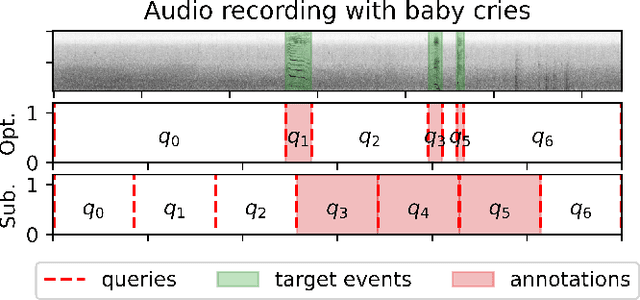

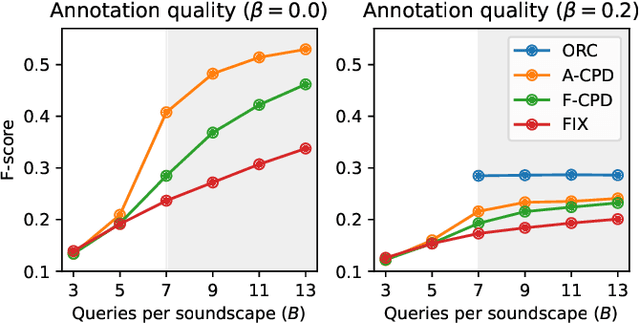
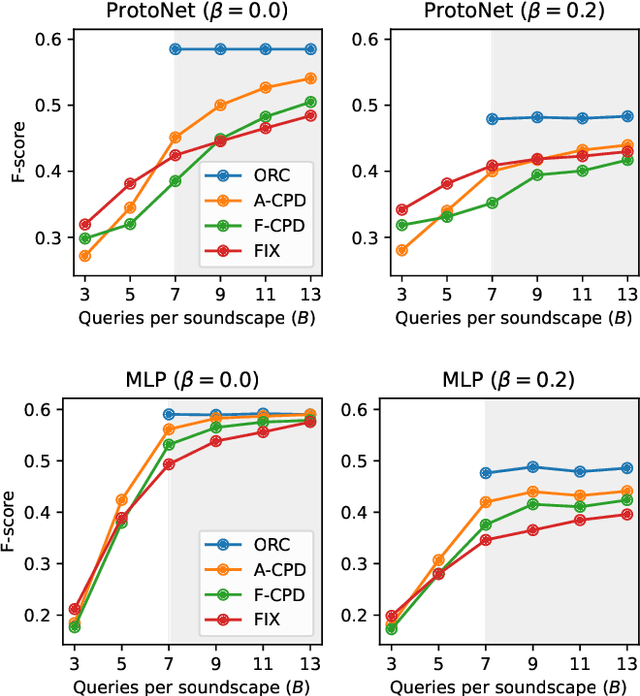
Abstract:In this work we propose an audio recording segmentation method based on an adaptive change point detection (A-CPD) for machine guided weak label annotation of audio recording segments. The goal is to maximize the amount of information gained about the temporal activation's of the target sounds. For each unlabeled audio recording, we use a prediction model to derive a probability curve used to guide annotation. The prediction model is initially pre-trained on available annotated sound event data with classes that are disjoint from the classes in the unlabeled dataset. The prediction model then gradually adapts to the annotations provided by the annotator in an active learning loop. The queries used to guide the weak label annotator towards strong labels are derived using change point detection on these probabilities. We show that it is possible to derive strong labels of high quality even with a limited annotation budget, and show favorable results for A-CPD when compared to two baseline query strategies.
Impacts of Color and Texture Distortions on Earth Observation Data in Deep Learning
Mar 07, 2024



Abstract:Land cover classification and change detection are two important applications of remote sensing and Earth observation (EO) that have benefited greatly from the advances of deep learning. Convolutional and transformer-based U-net models are the state-of-the-art architectures for these tasks, and their performances have been boosted by an increased availability of large-scale annotated EO datasets. However, the influence of different visual characteristics of the input EO data on a model's predictions is not well understood. In this work we systematically examine model sensitivities with respect to several color- and texture-based distortions on the input EO data during inference, given models that have been trained without such distortions. We conduct experiments with multiple state-of-the-art segmentation networks for land cover classification and show that they are in general more sensitive to texture than to color distortions. Beyond revealing intriguing characteristics of widely used land cover classification models, our results can also be used to guide the development of more robust models within the EO domain.
Concept-aware clustering for decentralized deep learning under temporal shift
Jun 22, 2023


Abstract:Decentralized deep learning requires dealing with non-iid data across clients, which may also change over time due to temporal shifts. While non-iid data has been extensively studied in distributed settings, temporal shifts have received no attention. To the best of our knowledge, we are first with tackling the novel and challenging problem of decentralized learning with non-iid and dynamic data. We propose a novel algorithm that can automatically discover and adapt to the evolving concepts in the network, without any prior knowledge or estimation of the number of concepts. We evaluate our algorithm on standard benchmark datasets and demonstrate that it outperforms previous methods for decentralized learning.
Grammatical gender in Swedish is predictable using recurrent neural networks
Jun 19, 2023



Abstract:The grammatical gender of Swedish nouns is a mystery. While there are few rules that can indicate the gender with some certainty, it does in general not depend on either meaning or the structure of the word. In this paper we demonstrate the surprising fact that grammatical gender for Swedish nouns can be predicted with high accuracy using a recurrent neural network (RNN) working on the raw character sequence of the word, without using any contextual information.
Fully Convolutional Networks for Dense Water Flow Intensity Prediction in Swedish Catchment Areas
Apr 04, 2023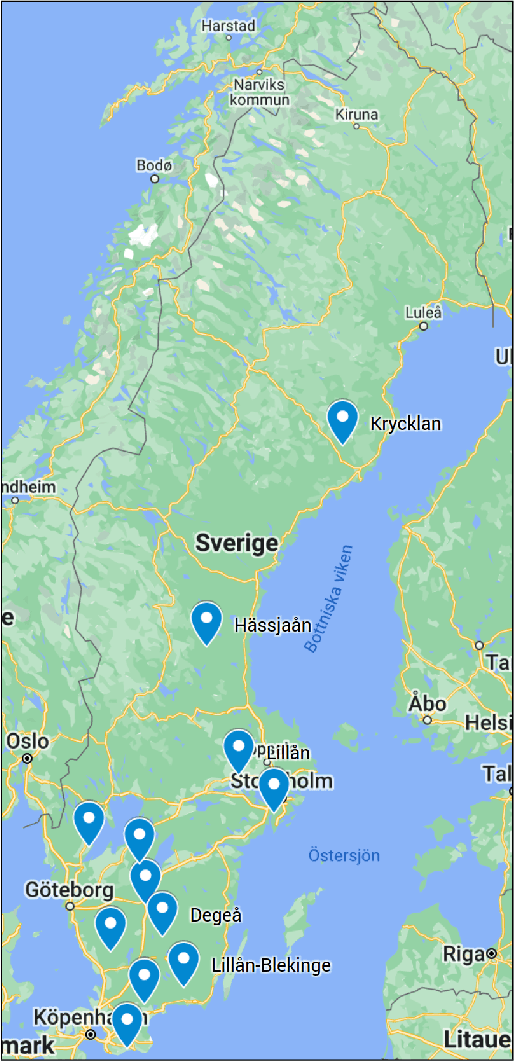
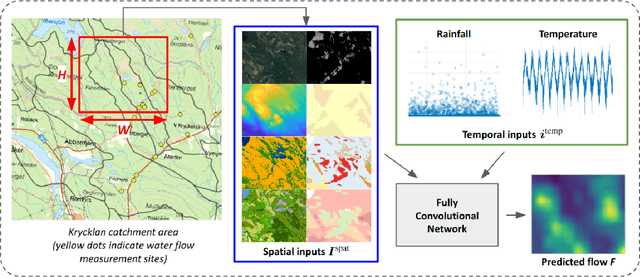
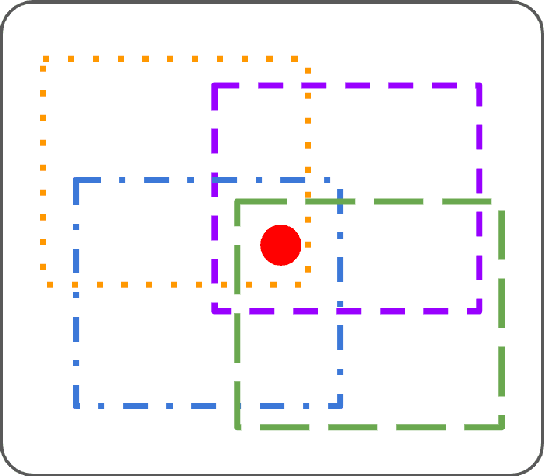
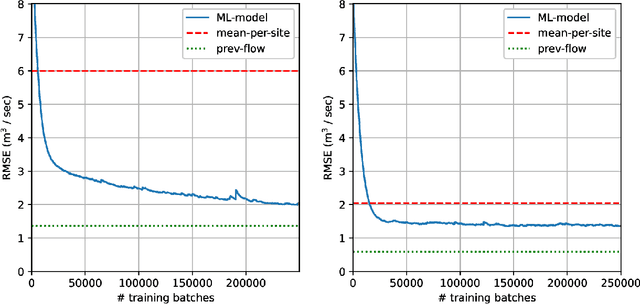
Abstract:Intensifying climate change will lead to more extreme weather events, including heavy rainfall and drought. Accurate stream flow prediction models which are adaptable and robust to new circumstances in a changing climate will be an important source of information for decisions on climate adaptation efforts, especially regarding mitigation of the risks of and damages associated with flooding. In this work we propose a machine learning-based approach for predicting water flow intensities in inland watercourses based on the physical characteristics of the catchment areas, obtained from geospatial data (including elevation and soil maps, as well as satellite imagery), in addition to temporal information about past rainfall quantities and temperature variations. We target the one-day-ahead regime, where a fully convolutional neural network model receives spatio-temporal inputs and predicts the water flow intensity in every coordinate of the spatial input for the subsequent day. To the best of our knowledge, we are the first to tackle the task of dense water flow intensity prediction; earlier works have considered predicting flow intensities at a sparse set of locations at a time. An extensive set of model evaluations and ablations are performed, which empirically justify our various design choices. Code and preprocessed data have been made publicly available at https://github.com/aleksispi/fcn-water-flow.
Private Node Selection in Personalized Decentralized Learning
Jan 30, 2023



Abstract:In this paper, we propose a novel approach for privacy-preserving node selection in personalized decentralized learning, which we refer to as Private Personalized Decentralized Learning (PPDL). Our method mitigates the risk of inference attacks through the use of secure aggregation while simultaneously enabling efficient identification of collaborators. This is achieved by leveraging adversarial multi-armed bandit optimization that exploits dependencies between the different arms. Through comprehensive experimentation on various benchmarks under label and covariate shift, we demonstrate that our privacy-preserving approach outperforms previous non-private methods in terms of model performance.
EFFGAN: Ensembles of fine-tuned federated GANs
Jun 23, 2022

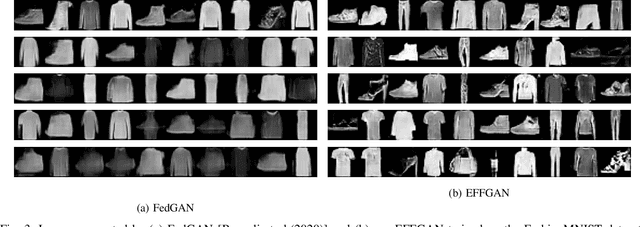
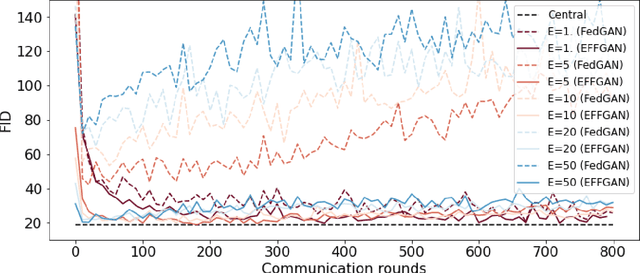
Abstract:Generative adversarial networks have proven to be a powerful tool for learning complex and high-dimensional data distributions, but issues such as mode collapse have been shown to make it difficult to train them. This is an even harder problem when the data is decentralized over several clients in a federated learning setup, as problems such as client drift and non-iid data make it hard for federated averaging to converge. In this work, we study the task of how to learn a data distribution when training data is heterogeneously decentralized over clients and cannot be shared. Our goal is to sample from this distribution centrally, while the data never leaves the clients. We show using standard benchmark image datasets that existing approaches fail in this setting, experiencing so-called client drift when the local number of epochs becomes to large. We thus propose a novel approach we call EFFGAN: Ensembles of fine-tuned federated GANs. Being an ensemble of local expert generators, EFFGAN is able to learn the data distribution over all clients and mitigate client drift. It is able to train with a large number of local epochs, making it more communication efficient than previous works.
 Add to Chrome
Add to Chrome Add to Firefox
Add to Firefox Add to Edge
Add to Edge